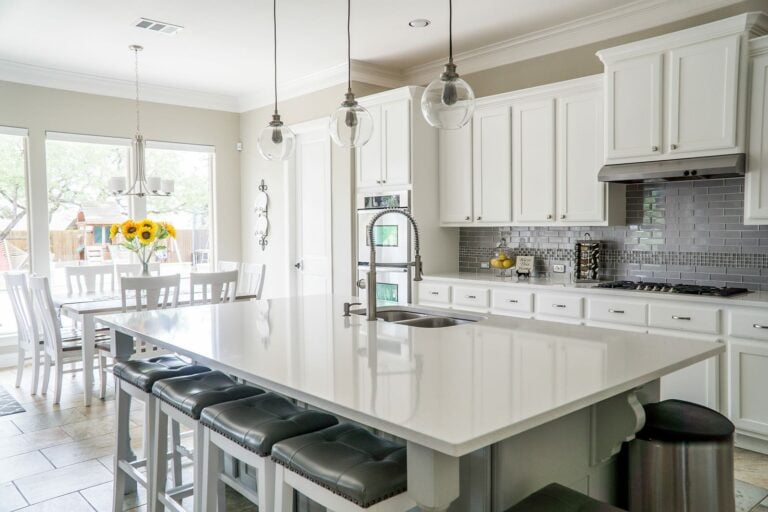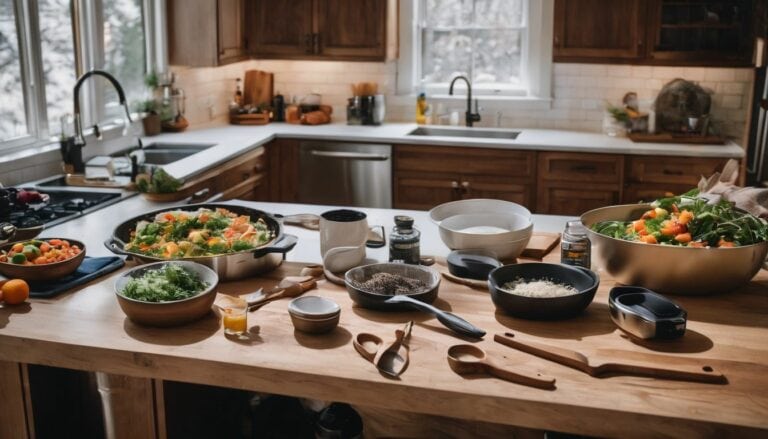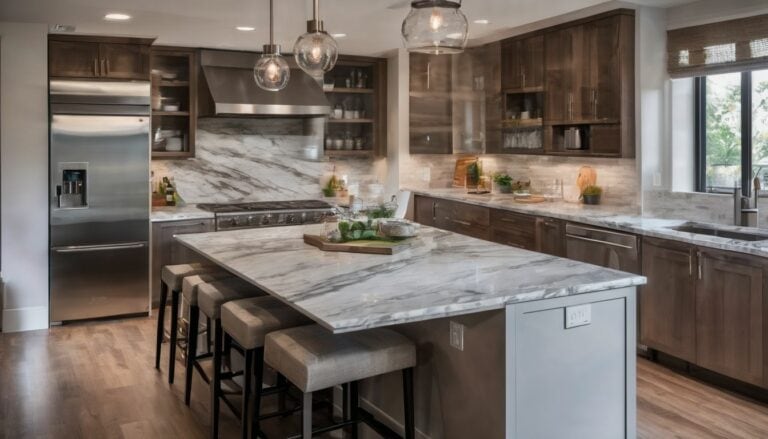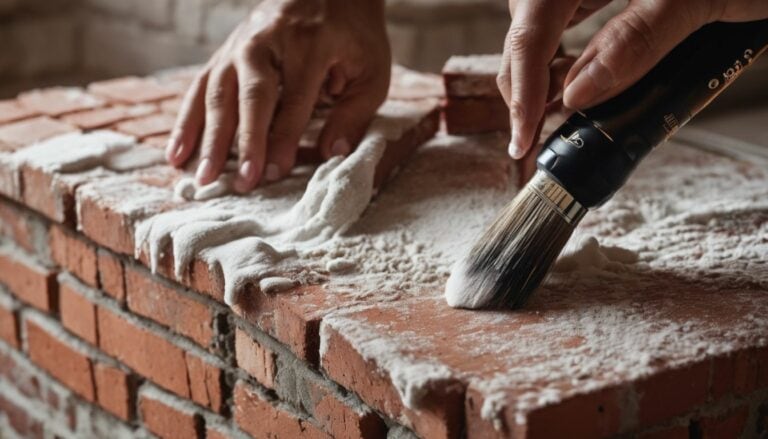Choosing Between Quartz and Granite Countertops: Unraveling the Differences
Choosing between quartz and granite countertops for your home can seem like a daunting task, right? After diving deep into some extensive research, it becomes clear that each material possesses its own unique traits; Quartz is hailed for its durability while Granite is renowned for its natural beauty.
This article will carefully unwrap everything you need to know about these two surfaces – from their aesthetics to maintenance requirements, and even their resale value. So let’s navigate this decision together – it could be the key in perfecting your dream kitchen or bathroom!
Key Takeaways
- Quartz countertops are engineered using ground quartz mixed with resins, pigments, and polymers, making them durable against scratches and stains.
- Granite countertops are formed from natural stone and have a unique appearance with various colors and veins.
- Quartz offers more design choices and customization options compared to granite.
- The cost of quartz countertops is generally higher than granite, but prices can vary based on factors such as color, thickness, and installation.
- Quartz is considered more eco – friendly since it does not require mining like granite does.
- Both quartz and granite countertops are heavy and typically require professional installation.
- Regular cleaning with mild soap and water is sufficient for maintaining both quartz and granite surfaces.
- Quartz countertops do not need sealing while granite requires regular sealing to protect against stains.
- Both quartz and granite countertops have a lifespan of up to 50 years.
Composition
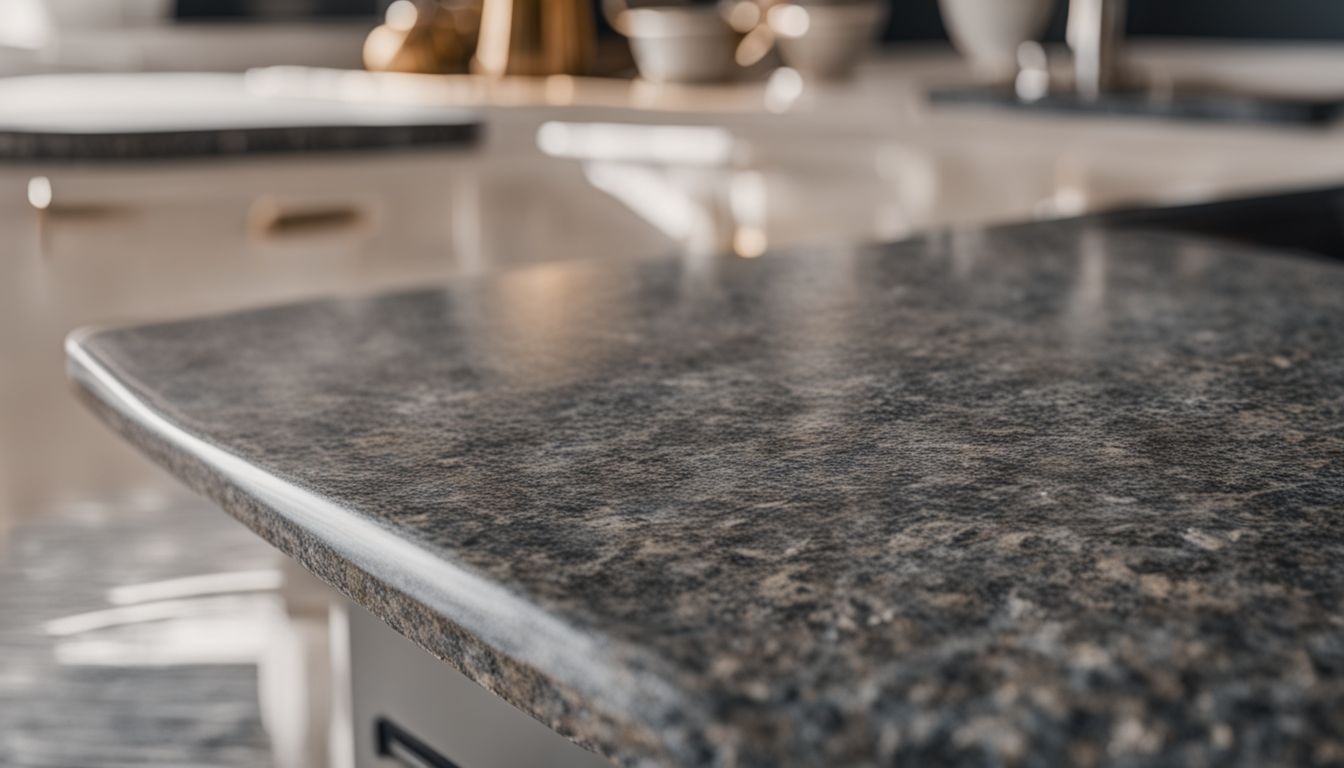
Granite is a natural stone that forms from cooled magma and consists primarily of quartz, feldspar, and other minerals. On the other hand, quartz countertops are engineered using about 90% ground quartz mixed with resins, pigments, and polymers to create a durable surface.
What is granite?
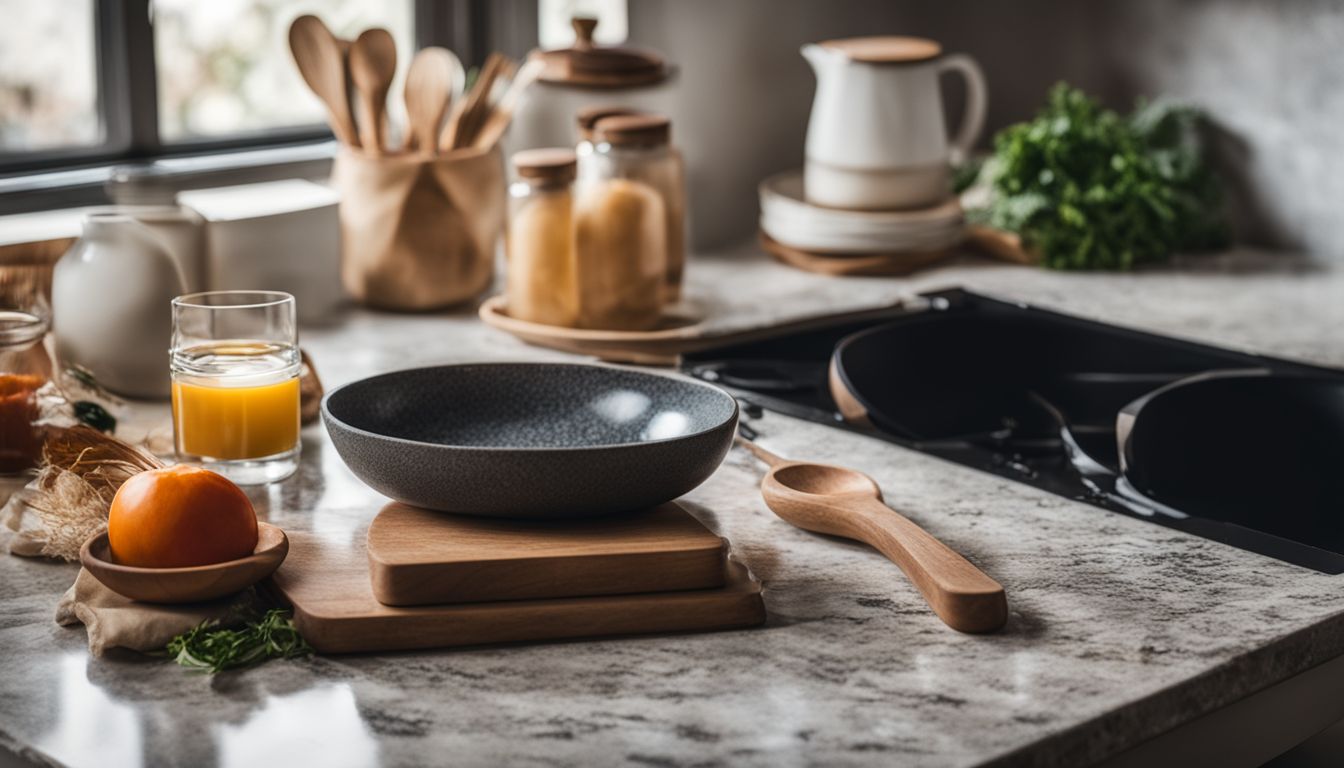
Granite is a strong stone that comes from deep in the earth. It has quartz, feldspar, and mica in it. This mix makes granite very hard, almost as hard as diamond! Many people use it for kitchen counters because it can deal with heat well.
But be careful! Granite may get spots from food or drinks if not sealed right. So make sure to put a seal on your granite counter to keep it nice and clean.
What is quartz?
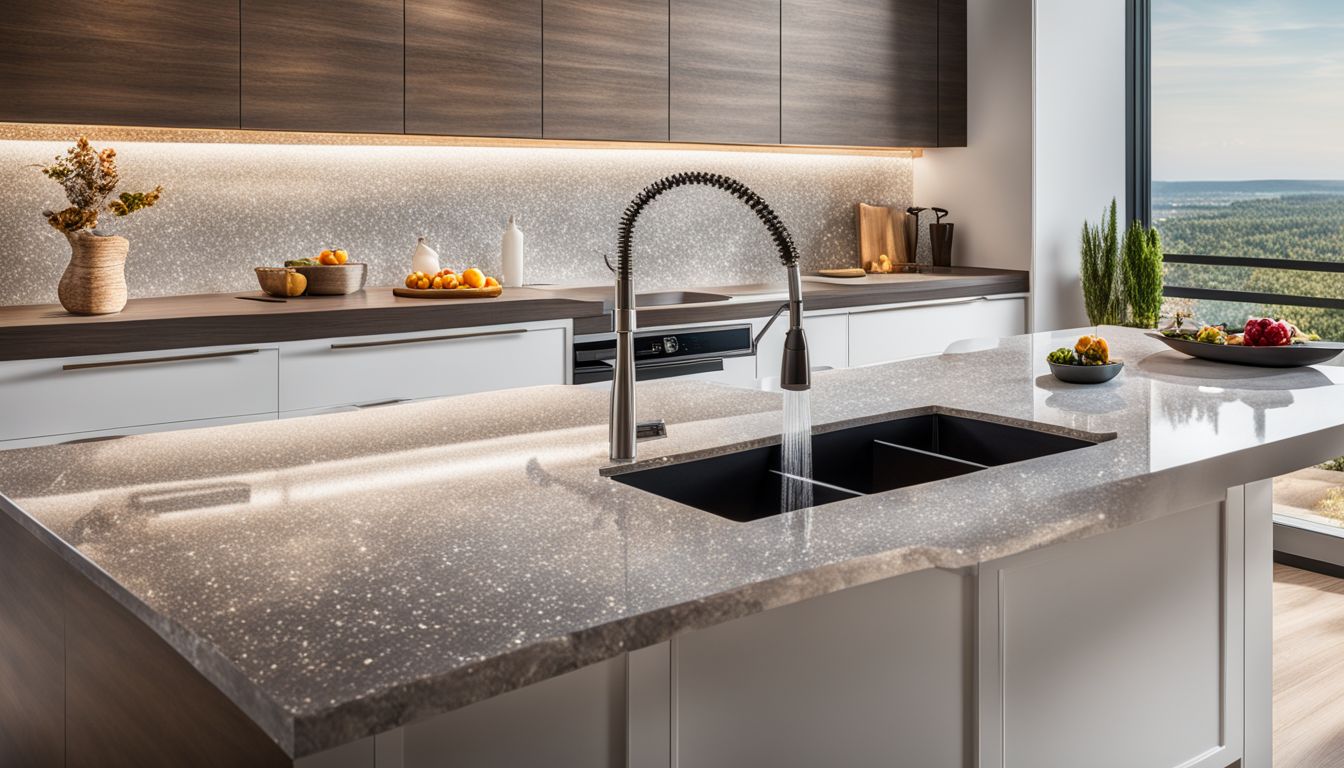
Quartz is not a solid rock from the earth like granite. It’s made by people in factories. They take small pieces of quartz and crush it up. They then mix it with resins or binders to make a hard surface that we use for countertops in our kitchens and bathrooms.
About 93% to 95% of this mix is ground-up quartz.
The good thing about making quartz in factories is that you can get many colors and patterns. You can choose what fits your style best! The way they create quartz also makes it tough against scratches and stains, which are common in busy kitchens.
So, if you want a countertop that looks good, lasts long, and needs less care, go for quartz!
Appearance
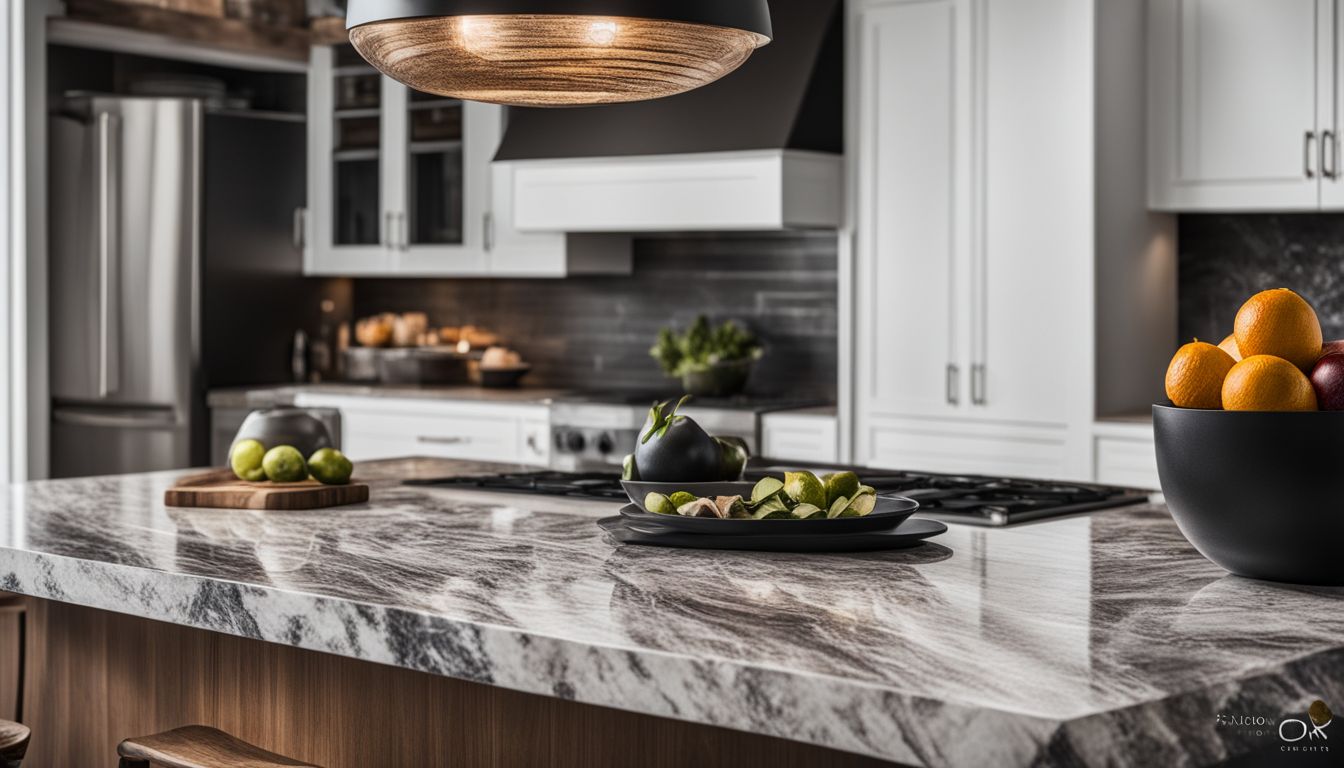
Quartz and granite countertops have distinct differences in appearance that offer various design choices.
Differences in appearance

It does not shine as much as granite though. So your choice will depend on what you like to see in your kitchen or bathroom.
Design choices
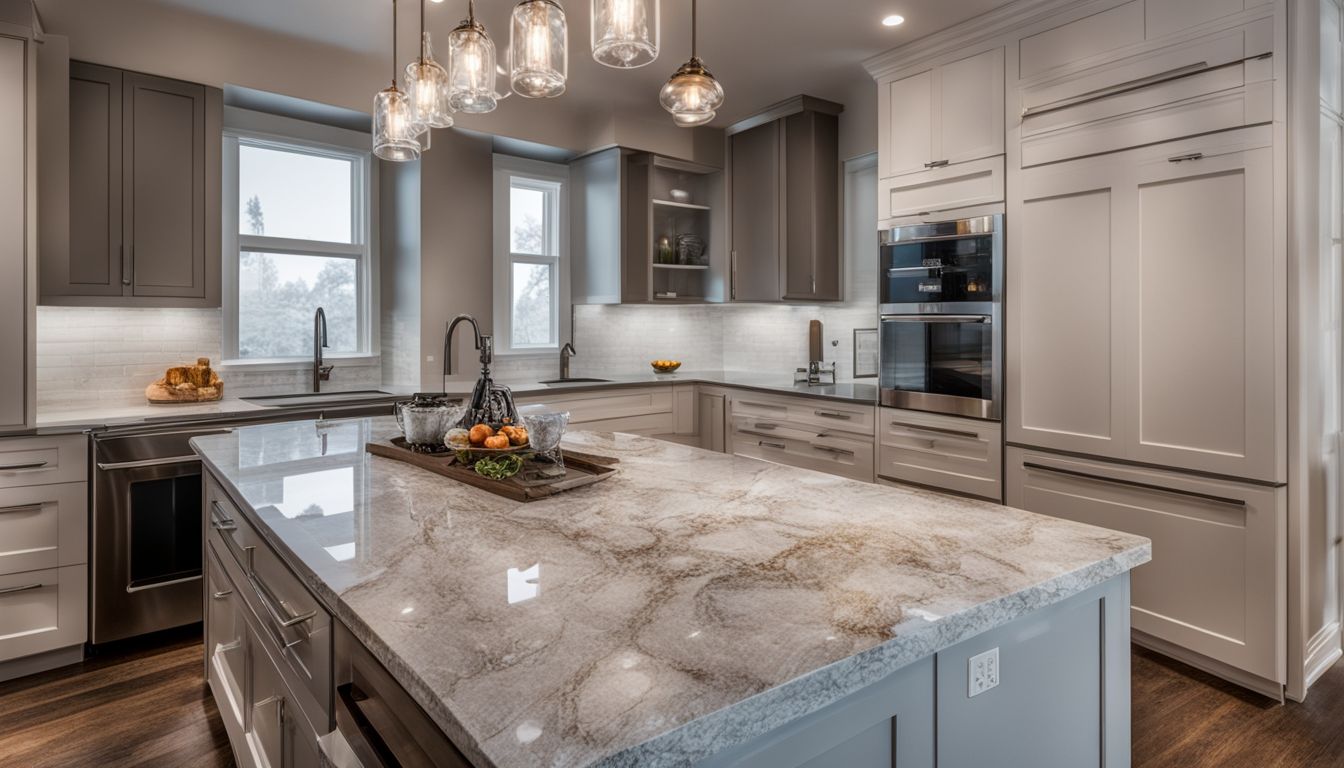
When it comes to design choices, quartz countertops offer a wide range of options. Unlike granite, which is a natural stone with unique patterns and colors, quartz is an engineered material that can be manufactured in various shades and styles.
This means you can find quartz countertops that mimic the look of granite or choose from a variety of other designs. Whether you prefer neutral tones, bold hues, matte or glossy finishes, there’s a quartz countertop that suits your taste and complements your kitchen decor.
Additionally, since quartz is an engineered material, it allows for more customization options when it comes to size and shape. So if you’re looking for versatility in design and want more control over the aesthetics of your kitchen or bathroom countertops, quartz may be the right choice for you.
Cost

When comparing quartz countertops and granite, it’s important to consider the cost.
Price comparisons for granite and quartz
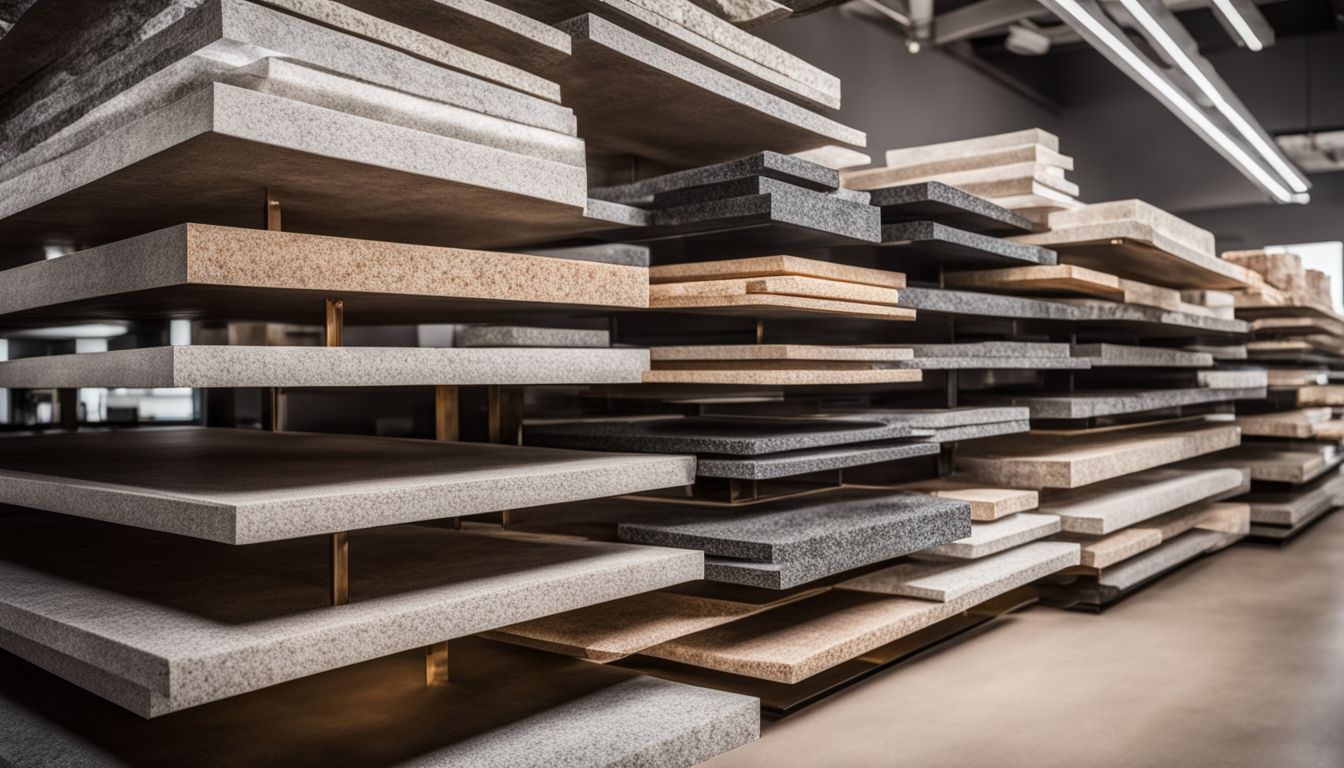
As you consider your countertop options, it’s crucial to understand the price differences between granite and quartz. Here is a comparative table providing a breakdown of the costs associated with each material.
| Material | Price per square foot (including installation) |
|---|---|
| Granite | $40 to $100 |
| Quartz | $50 to $200 |
These prices are estimates and can vary significantly based on factors such as the slab’s thickness, color, and edge. For instance, granite prices can sometimes reach up to $150 per square foot, including installation. On the flip side, quartz countertops can significantly increase the cost of a kitchen remodel, starting around $80 per square foot. It’s essential to consider these costs in the context of your budget and project specifications when making your countertop selection.
Factors that affect cost
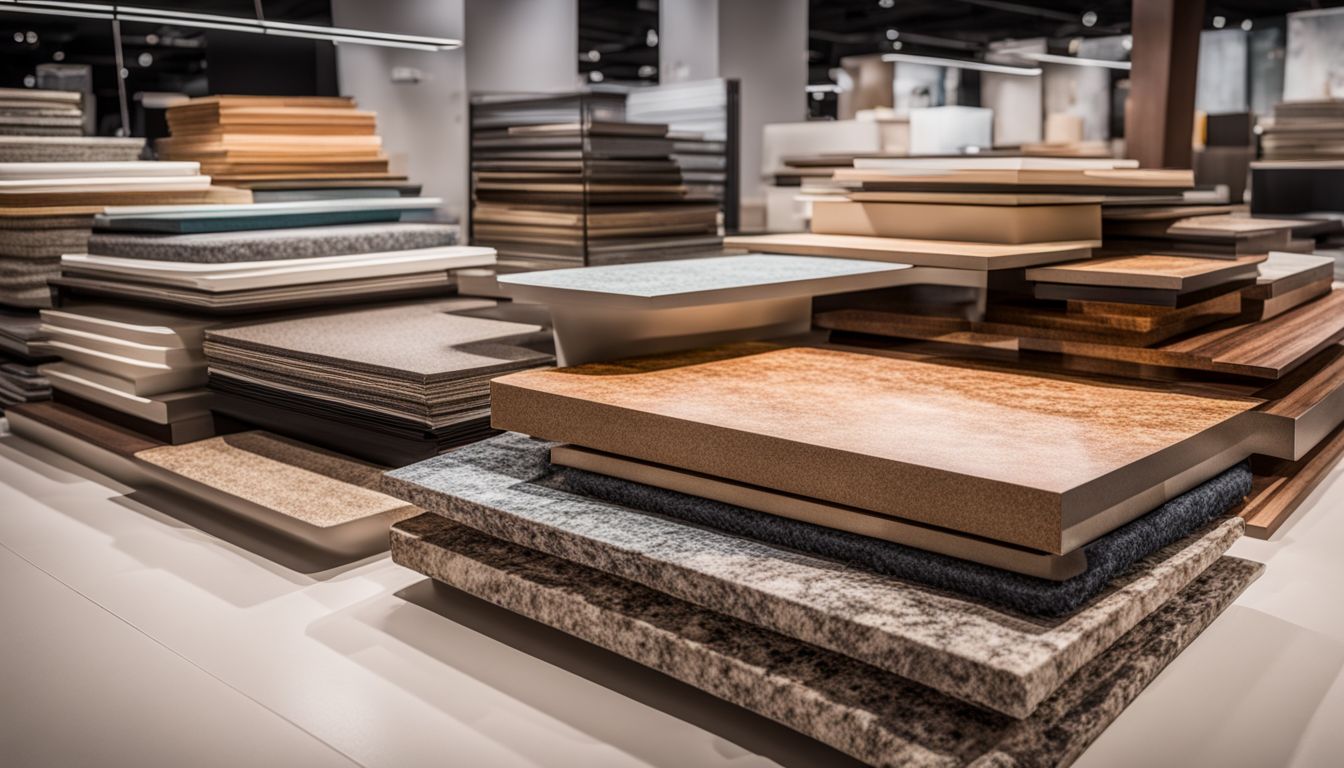
The cost of quartz and granite countertops can vary due to different factors. These factors include the color, thickness, source, shipping, and installation. For example, certain colors or patterns may be more expensive than others.
The thickness of the slab also plays a role in the price. Additionally, where the stone is sourced from and how it is transported can affect the cost. Finally, the installation process itself can contribute to the overall expense.
It’s important to consider these factors when budgeting for your countertop project.
Environmental Impact

When comparing the environmental impact of quartz countertops and granite, it is important to consider factors such as sustainability, energy consumption during production, and sourcing methods.
Eco-friendliness of each material
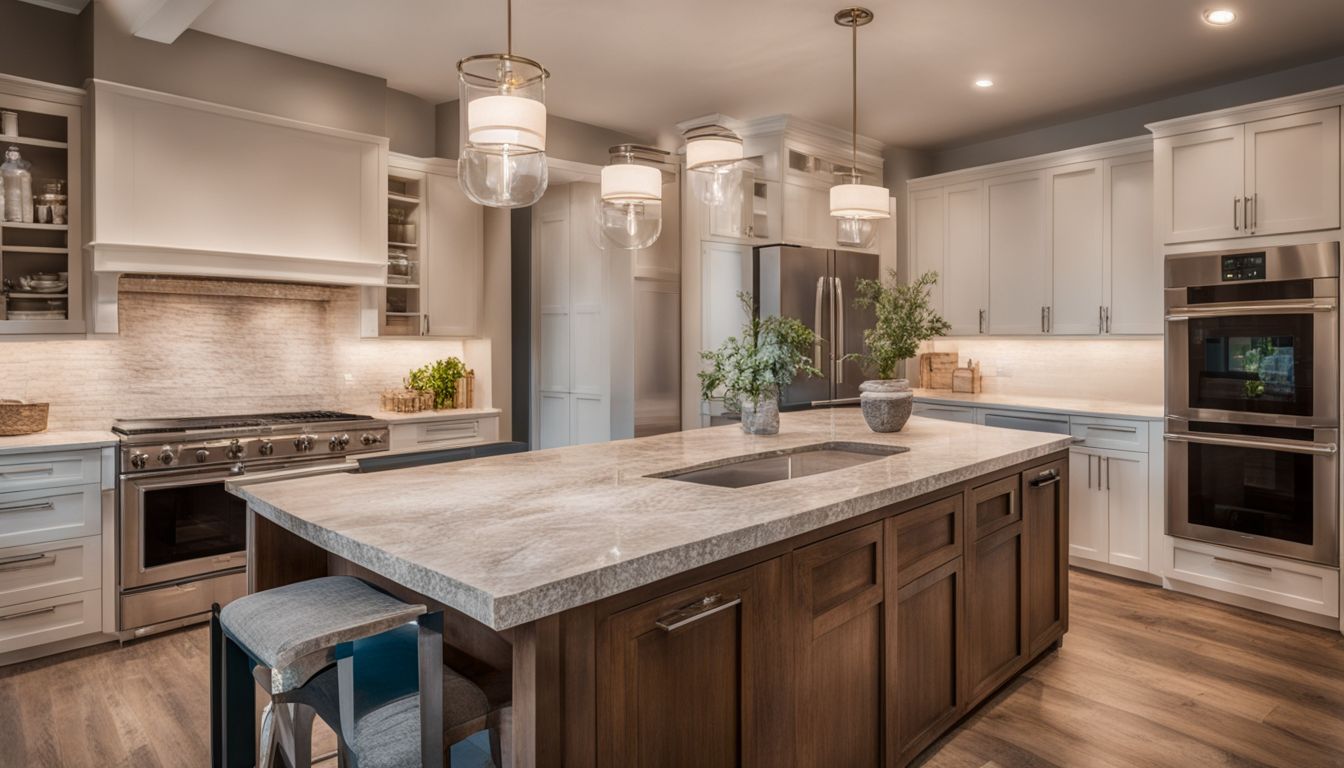
When it comes to eco-friendliness, quartz countertops are considered a better option compared to granite countertops. Quartz is an engineered stone made from natural quartz combined with resins and pigments.
It does not require mining like granite, which reduces its environmental impact. Additionally, quartz countertops can be produced using recycled materials, further reducing their carbon footprint.
On the other hand, granite countertops are sourced from natural stone quarries and require extensive energy for extraction and transportation. This makes them less eco-friendly than quartz.
DIY Suitability
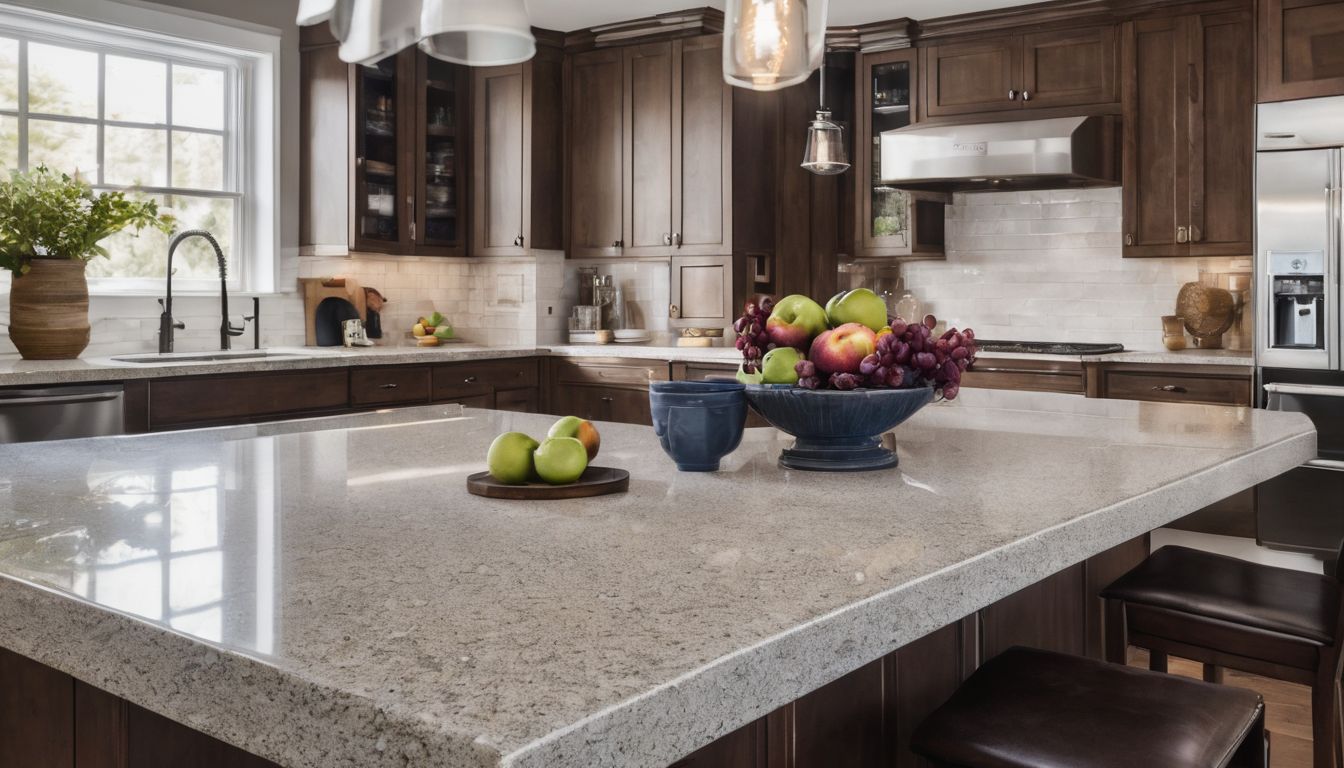
Quartz countertops are generally easier to install for DIY projects, with a simpler process and less need for professional expertise. If you’re considering tackling your own countertop installation, read on to learn more about the tips and tricks that can help you succeed.
Which material is easier to install for DIY projects
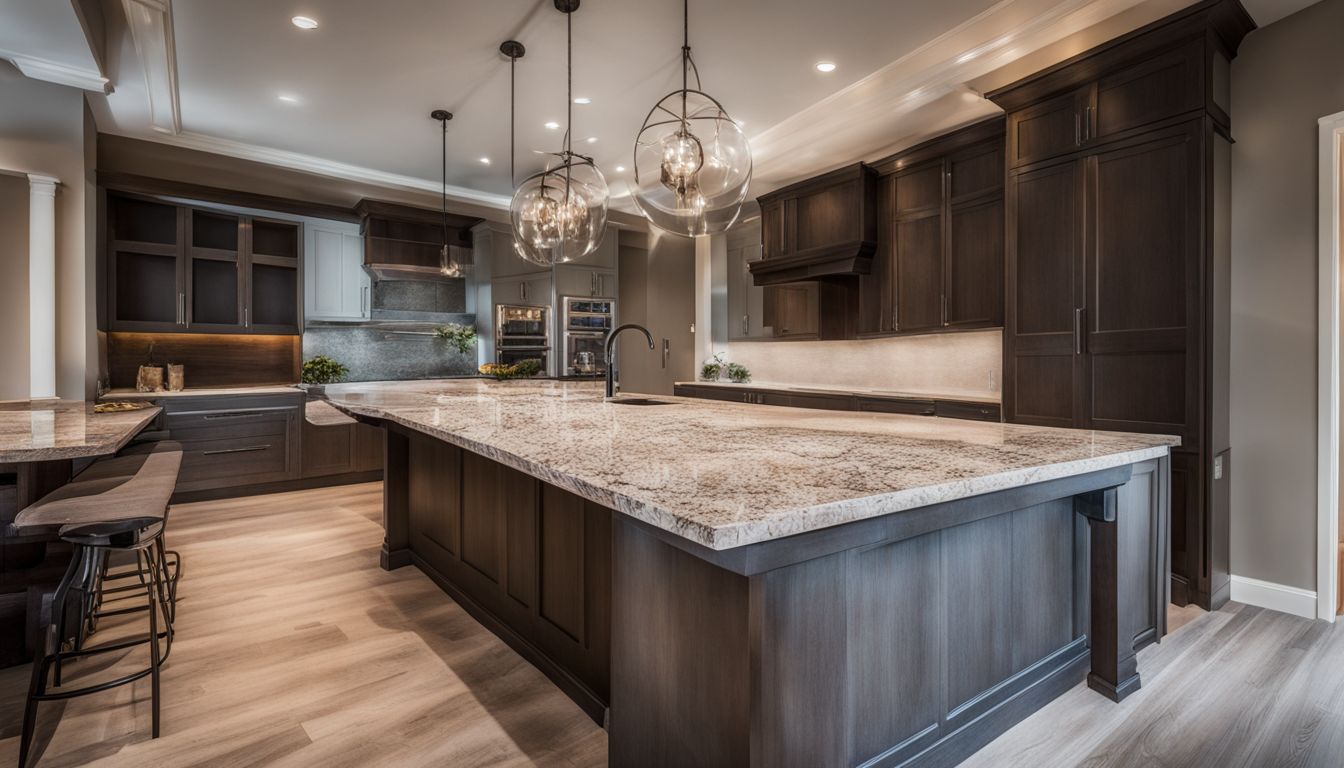
For DIY projects, neither quartz nor granite countertops are easy to install due to their heavy weight. It is recommended to hire professionals for most installation projects, especially the larger and more complex ones.
However, if you have a small and simple countertop that can be easily handled, you might be able to install it yourself with proper guidance and precautions. Keep in mind that both materials require precision cutting and careful handling during installation to ensure a successful outcome.
Tips for installation
When installing quartz or granite countertops, it is important to keep a few tips in mind. Here are some helpful suggestions:
- Hire a professional: Due to their weight and size, it is recommended to have a professional install both quartz and granite countertops. They have the expertise and equipment necessary to ensure a proper and secure installation.
- Plan ahead: Before starting the installation process, make sure you have all the necessary materials and tools readily available. This will help streamline the installation and prevent delays or complications.
- Ensure proper support: Both granite and quartz countertops require adequate support to avoid sagging or cracking over time. Make sure the underlying cabinets or structures are strong enough to handle the weight of the countertop.
- Seal properly: If you choose granite countertops, they may require sealing to protect against stains and moisture absorption. Follow manufacturer recommendations for sealing frequency and use high-quality sealants for optimal protection.
- Use caution with plumbing: If you are installing an undermount sink, consult a professional plumber to ensure proper placement and connection of the plumbing fixtures. This will help prevent leaks or damage to your new countertops.
- Take safety precautions: When handling heavy slabs of quartz or granite, always use proper lifting techniques and consider using additional help for larger pieces. Safety should be a top priority during the installation process.
Maintenance

Cleaning and care for granite and quartz
Taking care of your granite or quartz countertops is important to keep them looking their best. Here are some tips for cleaning and maintenance:
- For daily cleaning, use a mild soap and water solution to wipe down the surface of both granite and quartz countertops. Avoid using harsh or abrasive cleaners that can damage the finish.
- To remove stubborn stains on granite, create a paste with baking soda and water, apply it to the stain, and let it sit for a few minutes before rinsing off.
- Quartz countertops are highly resistant to staining, but if you encounter a tough stain, you can use a gentle cleaner specifically designed for quartz surfaces.
- Avoid using abrasive scrub brushes or steel wool on both granite and quartz countertops as they can cause scratches.
- Wipe up spills immediately to prevent any potential staining on both types of countertops.
- For daily maintenance, use a soft cloth or microfiber cloth to wipe down the surface. Avoid using rough materials like paper towels which can leave behind lint.
- Granite countertops should be sealed upon installation to protect against stains. You may need to reseal them periodically depending on usage and the type of sealant used.
- Quartz countertops do not require sealing due to their non – porous nature.
Differences in maintenance
Maintaining quartz and granite countertops requires different approaches. Quartz countertops are known for being low maintenance due to their non-porous surface, which means they don’t need to be sealed like granite does.
To keep quartz looking its best, simple cleaning with mild soap and water is usually enough. On the other hand, granite countertops require regular sealing to protect them from stains.
This involves applying a sealant once or twice a year. It’s also important to clean up spills promptly on both quartz and granite surfaces to prevent any potential damage or staining.
Durability

Quartz and granite countertops are both highly durable, but there are some key differences to consider. From their resistance to heat and water to their overall lifespan, find out which material is best suited for your needs.
Read on to learn more!
Comparison of lifespan
When it comes to lifespan, both quartz and granite countertops are durable choices that can last up to 50 years. Quartz countertops generally come with warranties ranging from 10 years to a lifetime, which adds an extra level of assurance.
In terms of durability, quartz has the upper hand as it is harder than granite and nearly indestructible. Both materials can handle everyday wear and tear without losing their beauty or functionality over time.
So whether you choose quartz or granite, you can expect your countertop to be a long-lasting investment in your home.
How each material holds up to water and heat
Granite and quartz have different levels of resistance when it comes to water and heat. Granite is porous, which means it can absorb moisture if not properly sealed. This makes granite countertops more prone to water damage over time.
On the other hand, quartz countertops are non-porous and resistant to water. The resins in quartz prevent moisture from seeping into the surface, making them highly durable against water damage.
When it comes to heat resistance, granite countertops are generally more robust than quartz countertops. While both materials can handle everyday kitchen tasks like hot pans or pots, extreme temperatures can cause thermal shock on a quartz surface compared to granite’s greater heat tolerance.
Resale Value
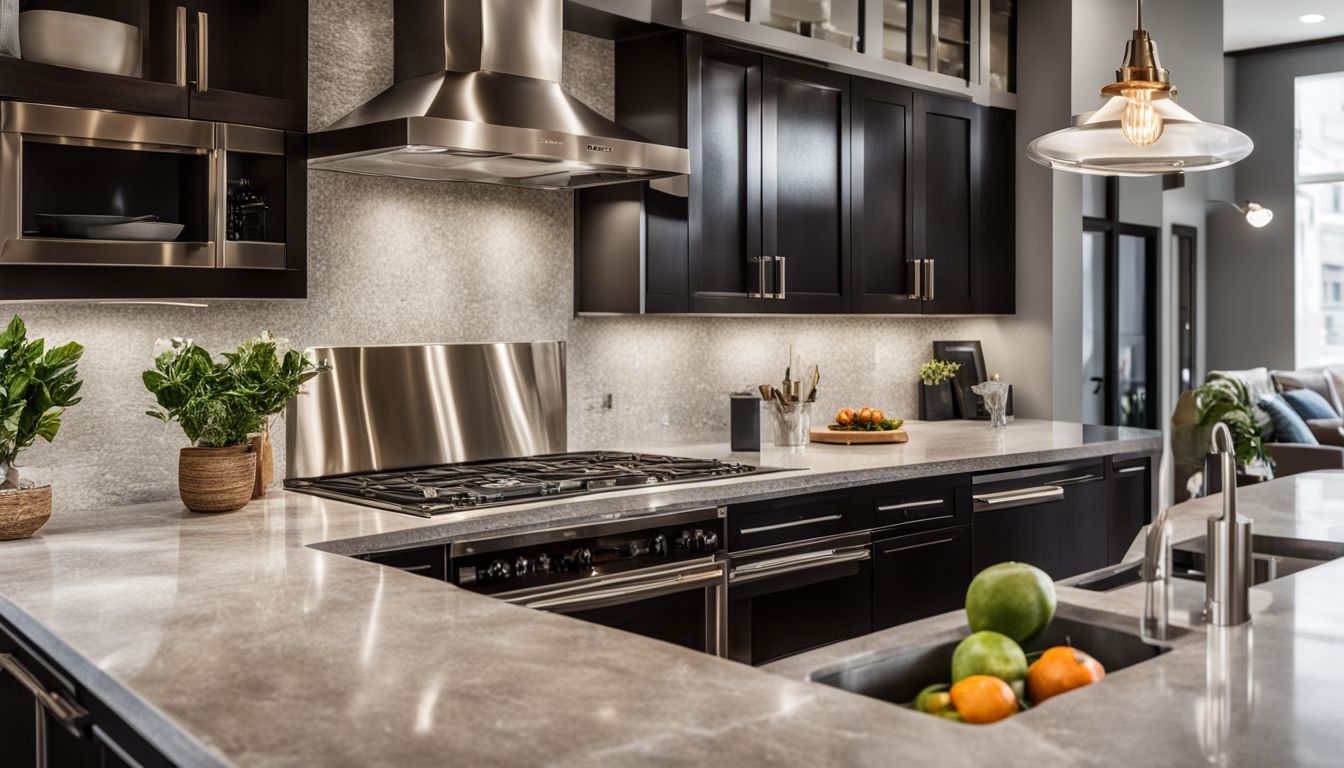
Discover how granite and quartz countertops can impact the value of your home, making it a worthwhile investment for any future resale.
How granite and quartz countertops affect home value
Granite and quartz countertops are renowned for their ability to increase a home’s resale value. It’s important to consider both the financial and aesthetic benefits that these countertops can provide when it comes to enhancing your property value.
| Countertop Material | Impact on Home Value |
|---|---|
| Granite | Granite countertops are known for their durability and natural appeal. They can significantly increase a home’s value, sometimes even up to 100% of their original cost. Their wide range of colors and unique patterns make them a popular choice for home buyers. |
| Quartz | Although quartz countertops may have a lower resale value compared to granite, they still have the potential to enhance a home’s resale value. Quartz’s uniformity and low-maintenance nature make it a sought-after feature in many homes. Its wide variety of colors and patterns also contribute to heightened appeal. |
Remember, the cost of both granite and quartz countertops can be influenced by numerous factors, including the thickness of the slab, the color, and the edge profile. But regardless of the type, high-quality countertops are generally seen as positive additions to a home’s overall resale value.
Conclusion
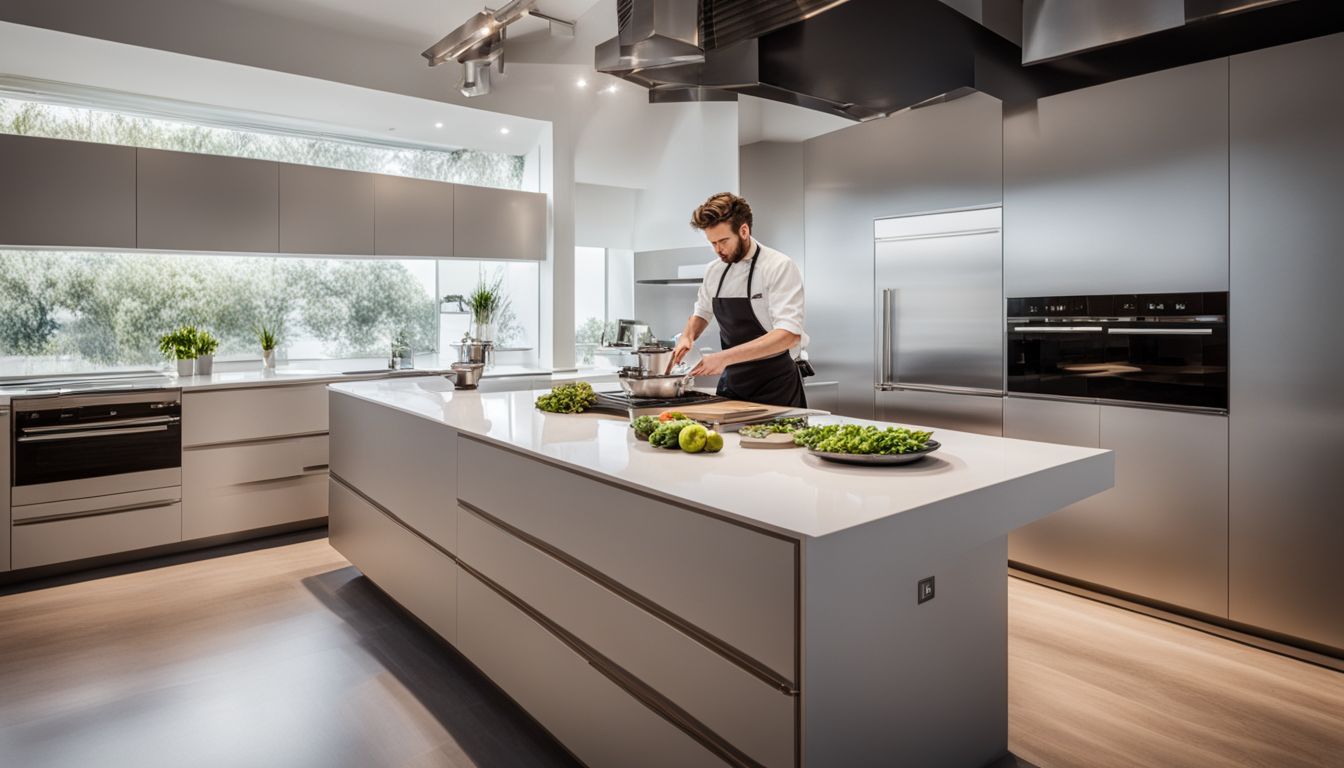
In conclusion, when it comes to quartz countertops vs granite, quartz offers greater durability and resistance to heat and stains. While granite has its natural beauty and requires more maintenance, quartz provides a wider range of design choices and is easier to care for.
With its increasing popularity, quartz countertops are becoming the preferred choice for many homeowners looking for long-lasting and versatile surfaces in their kitchens or bathrooms.
FAQs
1. What are the main differences between quartz countertops and granite?
Quartz countertops and granite have different strengths. Granite is a natural stone with unique patterns, while quartz is an engineered stone with color consistency.
2. How does the cost of quartz compare to granite?
The cost comparison depends on many things, like quality, finish and thickness. Both can be similar in price or vary based on these factors.
3. Do I need to seal both quartz and granite countertops?
Granite usually needs sealing because it’s more porous than quartz. But remember that outdoor use may affect this too!
4. Which one might last longer, Quartz or Granite?
Both types can offer good longevity if cared for well but they do have different durability levels.
5. Are there any color choices when choosing my countertop material?
Yes! Quartz countertops come in many colors while each piece of Granite has its own natural pattern which adds to its charm.
6. Can I install a countertop by myself at home?
For best results, you should seek professional recommendations before trying DIY installation as both materials require specific handling.


